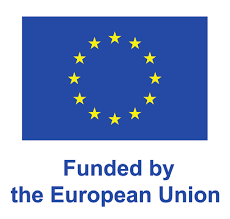We are pleased to invite colleagues from our partner universities abroad to the ERASMUS+ Blended intensive programme “Artificial Intelligence Opportunities and Challenges in Higher Education”. We organize this week as a Blended intensive programme (BIP) mobility project. International event will take place from 22 April until 26 April on site, at the College of Law in Riga. The program of the Staff Week apply here.
The aim of this ERASMUS+ Blended intensive programme is to promote the idea of internationalization, increase staff mobility and consequently student mobility. In this regard, we invite the students of your institution to a similar five-day international event in June. Duration: 3 June until 6 June on site, at College of Law. The program apply here.
The language of training is English. Maximum number of participants in group – 20. There is no registration fee. Participants are responsible for covering their own accommodation, living and travel costs. They are expected to get the Erasmus+ Mobility grant from their home Institution.
Should you be interested in participating, please fill out our online pre-registration form:
- Preliminary Application for Staff Week APPLY HERE
- Preliminary Application for Higher Education Students Blended intensive programme APPLY HERE
Registration Deadline: 15th March, 2024.
If you have any questions, you may reach us at: redakcija@jk.lv


